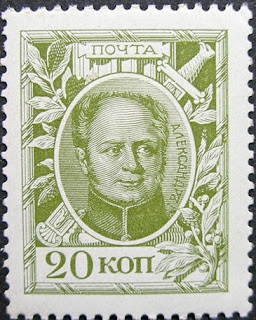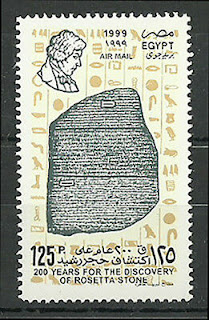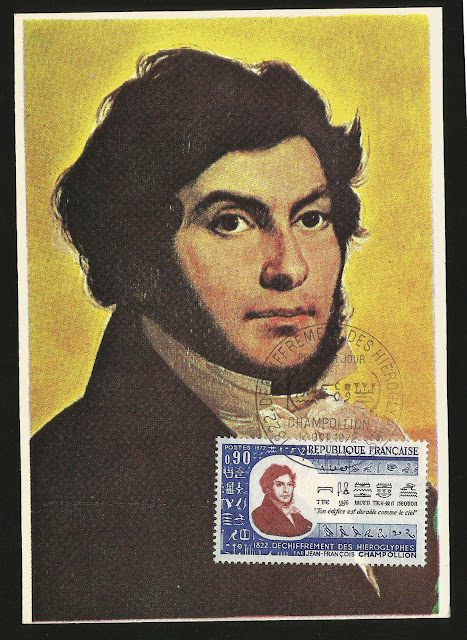Here are some events that happened on December 23rd. It could be an event or a person that died or was born on that day
1777 Born: Alexander I of Russia (d. 1825)
Alexander I (Russian: Алекса́ндр Па́влович, tr. Aleksándr Pávlovich, 23 December [O.S. 12 December] 1777 – 1 December [O.S. 19 November] 1825) was the Emperor of Russia (Tsar) between 1801 and 1825. He was the eldest son of Paul I and Sophie Dorothea of Württemberg. Alexander was the first king of Congress Poland, reigning from 1815 to 1825, as well as the first Russian Grand Duke of Finland, reigning from 1809 to 1825.
Born in Saint Petersburg to Grand Duke Paul Petrovich, later Paul I, Alexander succeeded to the throne after his father was murdered. He ruled Russia during the chaotic period of the Napoleonic Wars. As prince and during the early years of his reign, Alexander often used liberal rhetoric, but continued Russia's absolutist policies in practice. In the first years of his reign, he initiated some minor social reforms and (in 1803–04) major, liberal educational reforms, such as building more universities. Alexander appointed Mikhail Speransky, the son of a village priest, as one of his closest advisors. The Collegia was abolished and replaced by the State Council, which was created to improve legislation. Plans were also made to set up a parliament and sign a constitution.
In foreign policy, he changed Russia's position relative to France four times between 1804 and 1812 among neutrality, opposition, and alliance. In 1805 he joined Britain in the War of the Third Coalition against Napoleon, but after suffering massive defeats at the battles of Austerlitz and Friedland, he switched sides and formed an alliance with Napoleon by the Treaty of Tilsit (1807) and joined Napoleon's Continental System. He fought a small-scale naval war against Britain between 1807 and 1812 as well as a short war against Sweden (1808–09) after Sweden's refusal to join the Continental System. Alexander and Napoleon hardly agreed, especially regarding Poland, and the alliance collapsed by 1810. Alexander's greatest triumph came in 1812 when Napoleon's invasion of Russia proved to be a catastrophic disaster for the French. As part of the winning coalition against Napoleon, he gained territory in Finland and Poland. He formed the Holy Alliance to suppress revolutionary movements in Europe which he saw as immoral threats to legitimate Christian monarchs. He also helped Austria's Klemens von Metternich in suppressing all national and liberal movements.
During the second half of his reign, Alexander became increasingly arbitrary, reactionary, and fearful of plots against him; as a result he ended many of the reforms he made earlier. He purged schools of foreign teachers, as education became more religiously driven as well as politically conservative. Speransky was replaced as advisor with the strict artillery inspector Aleksey Arakcheyev, who oversaw the creation of military settlements. Alexander died of typhus in December 1825 while on a trip to southern Russia. He left no legitimate children, as his two daughters died in childhood. Neither of his brothers wanted to become emperor. After a period of great confusion (that presaged the failed Decembrist revolt of liberal army officers in the weeks after his death), he was succeeded by his younger brother, Nicholas I.
Russian stamp depicting Alexander I
1790 Born: Jean-François Champollion, French philologist, orientalist, and scholar (d. 1832)
Jean-François Champollion, also known as Champollion le jeune ('the Younger') (23 December 1790 – 4 March 1832), was a French scholar, philologist and orientalist, known primarily as the decipherer of Egyptian hieroglyphs and a founding figure in the field of Egyptology. A child prodigy in philology, he gave his first public paper on the decipherment of Demotic in 1806, and already as a young man held many posts of honor in scientific circles, and spoke Coptic and Arabic fluently. During the early 19th-century, French culture experienced a period of 'Egyptomania', brought on by Napoleon's discoveries in Egypt during his campaign there (1798–1801) which also brought to light the trilingual Rosetta Stone. Scholars debated the age of Egyptian civilization and the function and nature of hieroglyphic script, which language if any it recorded, and the degree to which the signs were phonetic (representing speech sounds) or ideographic (recording semantic concepts directly). Many thought that the script was only used for sacred and ritual functions, and that as such it was unlikely to be decipherable since it was tied to esoteric and philosophical ideas, and did not record historical information. The significance of Champollion's decipherment was that he showed these assumptions to be wrong, and made it possible to begin to retrieve many kinds of information recorded by the ancient Egyptians.
Champollion lived in a period of political turmoil in France which continuously threatened to disrupt his research in various ways. During the Napoleonic Wars, he was able to avoid conscription, but his Napoleonic allegiances meant that he was considered suspect by the subsequent Royalist regime. His own actions, sometimes brash and reckless, did not help his case. His relations with important political and scientific figures of the time, such as Joseph Fourier and Silvestre de Sacy helped him, although in some periods he lived exiled from the scientific community.
In 1820, Champollion embarked in earnest on the project of decipherment of hieroglyphic script, soon overshadowing the achievements of British polymath Thomas Young who had made the first advances in decipherment before 1819. In 1822, Champollion published his first breakthrough in the decipherment of the Rosetta hieroglyphs, showing that the Egyptian writing system was a combination of phonetic and ideographic signs – the first such script discovered. In 1824, he published a Précis in which he detailed a decipherment of the hieroglyphic script demonstrating the values of its phonetic and ideographic signs. In 1829, he traveled to Egypt where he was able to read many hieroglyphic texts that had never before been studied, and brought home a large body of new drawings of hieroglyphic inscriptions. Home again he was given a professorship in Egyptology, but only lectured a few times before his health, ruined by the hardships of the Egyptian journey, forced him to give up teaching. He died in Paris in 1832, 41 years old. His grammar of Ancient Egyptian was published posthumously.
During his life as well as long after his death intense discussions over the merits of his decipherment were carried out among Egyptologists. Some faulted him for not having given sufficient credit to the early discoveries of Young, accusing him of plagiarism, and others long disputed the accuracy of his decipherments. But subsequent findings and confirmations of his readings by scholars building on his results gradually led to general acceptance of his work. Although some still argue that he should have acknowledged the contributions of Young, his decipherment is now universally accepted, and has been the basis for all further developments in the field. Consequently, he is regarded as the "Founder and Father of Egyptology".
Stamps from Egypt, France, Monaco depicting Champollion or the Rosetta Stone
1893 – The opera Hansel and Gretel by Engelbert Humperdinck is first performed.
Engelbert Humperdinck (1 September 1854 – 27 September 1921) was a German composer, best known for his opera Hansel and Gretel.
Humperdinck's reputation rests chiefly on his opera Hänsel und Gretel, which he began work on in Frankfurt in 1890. He first composed four songs to accompany a puppet show his nieces were giving at home. Then, using a libretto by his sister Adelheid Wette rather loosely based on the version of the fairy tale by the Brothers Grimm, he composed a singspiel of 16 songs with piano accompaniment and connecting dialogue. By January 1891 he had begun working on a complete orchestration.
The opera premiered in Weimar on 23 December 1893, under the baton of Richard Strauss. With its highly original synthesis of Wagnerian techniques and traditional German folk songs, Hansel and Gretel was an instant and overwhelming success.
Hansel and Gretel has always been Humperdinck's most popular work. In 1923 the Royal Opera House (London) chose it for their first complete radio opera broadcast. Eight years later, it was the first opera transmitted live from the Metropolitan Opera (New York).
Below is a German First Day Cover issued for the 150th birthday anniversary of Engelbert Humperdinck
1939 Died Anthony Fokker, Indonesia-born Dutch pilot and engineer, designed the Fokker Dr.I and Fokker D.VII (b. 1890)
Anton Herman Gerard "Anthony" Fokker (6 April 1890 – 23 December 1939) was a Dutch aviation pioneer and aircraft manufacturer. He is most famous for the fighter aircraft he produced in Germany during the First World War such as the Eindecker monoplanes, the Dr.1 triplane and the D.VII biplane.
After the Treaty of Versailles forbade Germany to produce airplanes, Fokker moved his business to the Netherlands. There his company was responsible for a variety of successful aircraft including the Fokker trimotor, a successful passenger aircraft of the inter-war years. He died in New York in 1939. Later authors suggest he was personally charismatic but unscrupulous in business and a controversial character.
Dutch stamps showing Fokker airplanes










No comments:
Post a Comment